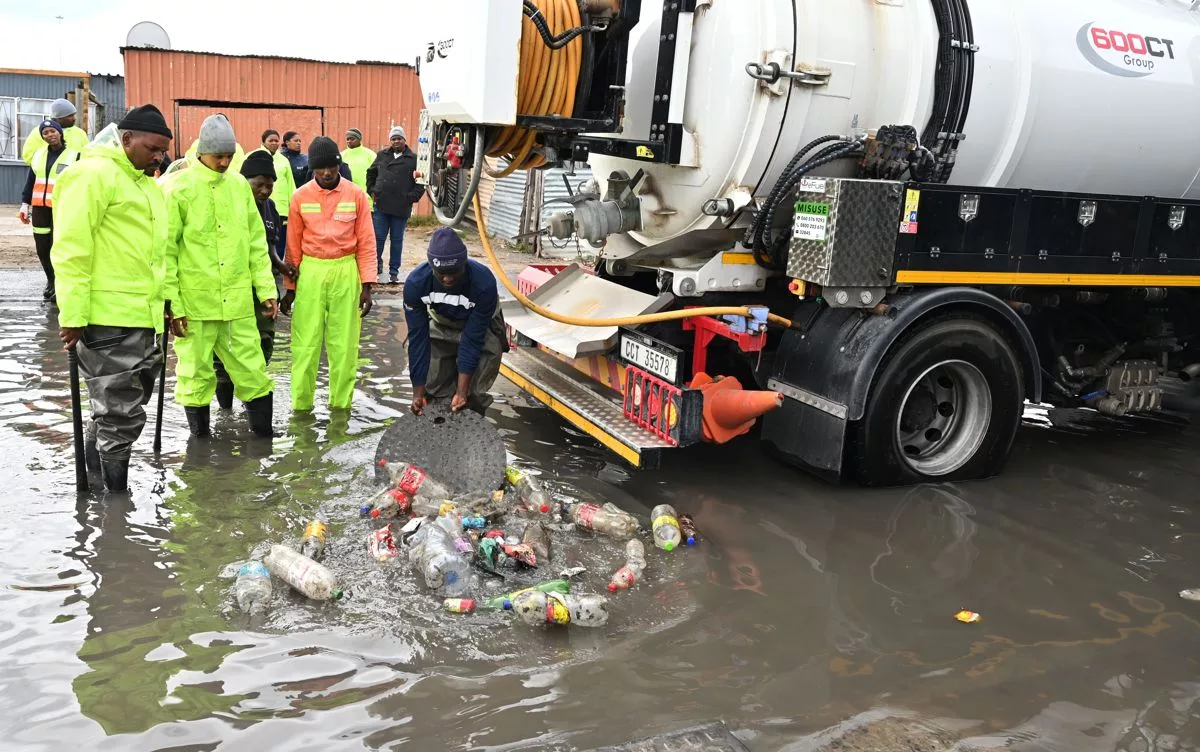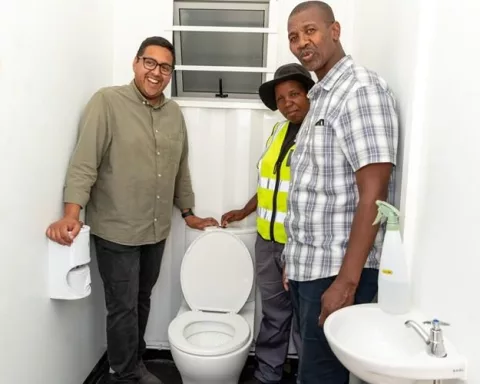Citrusdal, a beautiful town in South Africa’s Western Cape, has been hit by severe flooding, blocking access and causing significant infrastructure damage. However, the community and government are working tirelessly to restore access and mitigate future risks. The Western Cape Department of Infrastructure is implementing an extensive repair plan, with some routes already reopened. The community is urged to exercise patience and caution while progress is made, and the restoration of Citrusdal serves as a testament to the community’s resilience.
How is Citrusdal recovering from natural disasters?
The community and government in Citrusdal are working tirelessly to recover from flooding and restore access to the town. The Western Cape Department of Infrastructure is implementing an extensive repair plan involving constructing a drainage layer and executing layer works. The reopened routes include Citrusdal to N7 via Clanwilliam and Citrusdal to Ceres via Route MR310, with another route likely to reopen soon. The government is also working to mitigate the risk of future incidents and appeals to the community for safety and patience.
Section 1: The Situation of Citrusdal
The picturesque town of Citrusdal, embedded deep within South Africa’s Western Cape region, has been confronting the turbulent aftermath of nature’s rage. Torrential downpours have repeatedly led to flooding, obstructing entry to the town and leaving its inhabitants stranded. This situation has caused significant transportation and infrastructure difficulties. Even amidst these trying circumstances, the unwavering spirit of the community and the government’s relentless efforts for recovery are commendable.
Earlier this month, Citrusdal faced another natural calamity when excessive rainfall blocked all routes to the town. This incident was a chilling reminder of the events of 2023, when flooding washed away access roads, including a crucial portion between the 112.84 and 112.93-kilometre markers. Displaying admirable resilience and engineering skills, the local community successfully rehabilitated this area, which withstood the recent floods.
However, this year, another stretch, extending from the 112.74 to 112.84-kilometre markers, succumbed to the rising waters. Moreover, the section between the 12.6- and the 13.36-kilometre markers experienced varied levels of destruction as the river broke its banks and overflowed.
Section 2: Repair and Restoration Efforts
Fortunately, the Western Cape Department of Infrastructure has reported a reduction in water levels. This development is crucial as it permits the initiation of restoration efforts. The extensive repair plan involves preparing the affected area, constructing a drainage layer composed of rockfill, and executing layer works. The initiation of stop-and-go traffic regulations signals the commencement of base layer installations.
Head of the Department of Infrastructure, Advocate Chantal Smith, clarified the department’s objectives, asserting, “As in 2023, the immediate priority is to reestablish access as soon as the layer works are complete.” She further remarked that the repaired section of MR310 on the N7-side of Citrusdal will surpass its previous condition, boasting upgraded surfacing road shoulders and rockfill embankment reinforcement.
Despite the vital necessity of resurfacing the rebuilt section, it will likely take place during the warmer months to maintain the quality of the resurfacing. Consequently, the repaired section may remain a gravel section until resurfacing concludes. Currently, the overall cost of the repairs and the timeline for the reopening of the routes are uncertain.
Section 3: Appeal for Safety and Patience
The Provincial Minister of Infrastructure, Tertius Simmers, has appealed to the community to avoid the construction site for safety reasons. Simultaneously, he acknowledged the community’s patience and understanding, declaring, “Considering the challenges our community has encountered due to the severe weather, I call upon all residents and travellers to exercise patience and caution as we work tirelessly to restore complete access to Citrusdal.”
He also emphasized that key players are working fervently ‘behind the scenes’ to address river-related issues and mitigate the risk of future similar incidents. This effort requires cooperation across the Western Cape Government, other government spheres, and key stakeholders.
Section 4: Restoration Progress and Community Spirit
As it stands, two of the four primary routes to Citrusdal are now accessible, and a third is likely to reopen soon, depending on weather and water level conditions. The reopened routes include Citrusdal to N7 via Clanwilliam (Route MR539 to DR2183 to N7) and Citrusdal to Ceres via Route MR310. The route likely to reopen in the near future is Citrusdal-N7 via MR539, with the low water bridge on this route currently submerged and closed.
Despite the ongoing challenges, Citrusdal’s story stands as a tribute to the community’s undying spirit and the government’s unwavering dedication to restoring access to this charming town. Together, they continue to navigate the aftermath of these natural disasters, demonstrating resilience and unity in the face of adversity.
1. What natural disaster has Citrusdal recently faced?
Citrusdal has recently faced severe flooding caused by torrential downpours, which has blocked access to the town and caused significant infrastructure damage.
2. How is Citrusdal recovering from the natural disaster?
The community and government in Citrusdal are working tirelessly to recover from the flooding and restore access to the town. The Western Cape Department of Infrastructure is implementing an extensive repair plan involving constructing a drainage layer and executing layer works. Some routes have already reopened, and the government is working to mitigate the risk of future incidents.
3. What is the Western Cape Department of Infrastructure doing to repair the damage in Citrusdal?
The Western Cape Department of Infrastructure is implementing an extensive repair plan involving preparing the affected area, constructing a drainage layer composed of rockfill, and executing layer works. The repaired section of MR310 on the N7-side of Citrusdal will surpass its previous condition, boasting upgraded surfacing road shoulders and rockfill embankment reinforcement.
4. When will the routes to Citrusdal reopen?
The overall cost of the repairs and the timeline for the reopening of the routes are uncertain. However, two of the four primary routes to Citrusdal are now accessible, and a third is likely to reopen soon. The government is urging the community to exercise patience and caution while progress is made.
5. What is the community doing to help with the restoration efforts?
The community in Citrusdal has shown remarkable resilience and engineering skills and successfully rehabilitated an area that withstood the recent floods. The community spirit remains undying, and they continue to navigate the aftermath of these natural disasters, demonstrating resilience and unity in the face of adversity.
6. What is the government doing to mitigate the risk of future incidents?
The government is working to mitigate the risk of future incidents and appeals to the community for safety and patience. This effort requires cooperation across the Western Cape Government, other government spheres, and key stakeholders. Key players are working fervently ‘behind the scenes’ to address river-related issues and mitigate the risk of future similar incidents.












